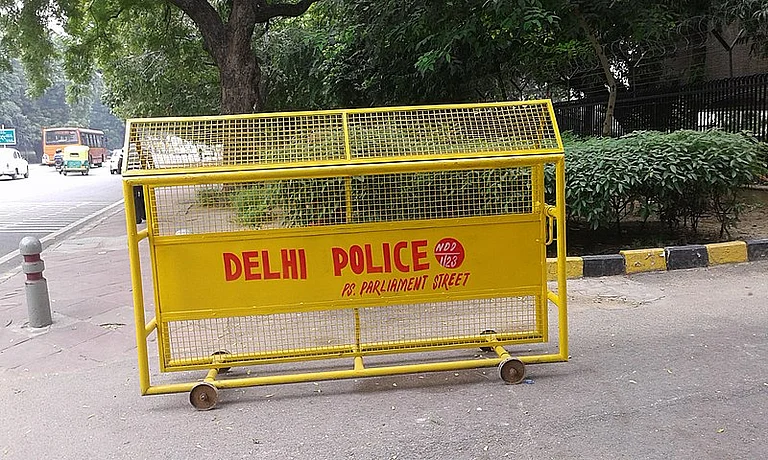How the 'ideological' tussle is resolved may prove critical for West Bengal, which finds itself in the elite company of other fast forward states like Karnataka and Maharashtra on the question of playing host to a booming industry. No wonder the state government has given a call to arms, indicating it would fight the Centre all the way, legally if necessary.
The Jyoti Basu government wants the existing 25-acre ceiling on individual holdings in non-urban, non-agricultural areas to go—chiefly because this would remove the main encumbrance in the location of industrial projects in the state. With the highest population density in India at over 780 people per sq km, West Bengal, one of the smallest states, can't afford profligacy with its space. Land prices are soaring and little is available around the Calcutta-Howrah industrial hub.
The very future of its much-flaunted industrial revival hinges on the government's ability to provide land at reasonable rates to investors. The Centre, however, remains unsympathetic. The upshot is: another bout of recriminations between New Delhi and an Opposition-ruled state is in the offing, providing scope for much slogan-mongering and posturing in the run-up to the general elections.
The state's hardsell—projecting itself as a progressive area for investments—has started paying dividends. Bidyut Ganguly, minister for commerce and industries, says that since 1991 "altogether 1,008 projects involving investment to the tune of Rs 223 billion have been approved". But clearly not all is plain sailing.
The sceptics, who are not all in the Congress either, have asked where in West Bengal is the land to accommodate all the proposed projects and how many of the MOUs signed recently are actually being implemented. The second of these queries raised the hackles of senior Marxist leaders, including Basu. "Untrue, all untrue," was his explosive reaction in a recent interview, as a questioner, quoting Ganguly himself, reminded him that out of the 53 MOUs signed recently, only two had rolled into implementation stage.
Basu did attempt to respond to the first question, relating to the very availability of land. "We are discussing with the Centre the amendment of certain laws. At present, we on our own can set up or help implement only a few projects. But we have to ensure that the local people are not affected when industries are set up in their areas. The land ceiling laws, for instance, need to be amended. For the first time, we are thinking of introducing rubber cultivation. We can provide some land for this in north Bengal, and other areas, if needed. We need land for new townships and other projects. We are seeking legal advice so that all this can be achieved," he said.
This is where the Centre's thumbs-down has checkmated the state government. A note prepared by officials of the Union Rural Development and Employment Ministry, headed by Jagannath Mishra, says: "Agreeing to any relaxation or exemption from the ceiling prescribed for agricultural holdings would amount to violation of the national land reforms....If the ceiling is relaxed, as proposed by the West Bengal government, it would result in the concentration of large holdings in the hands of individuals/industry and the landless poor would be deprived of the benefit of allotment of surplus lands, which is an important part of the poverty alleviation programme." For good measure, the note was made public during a recent visit by Mishra to West Bengal.
While Karnataka, Maharashtra and West Bengal want the ceiling relaxed, the latter two have sought presidential assent for their proposals which would enable (a) any individual, firm, or company or others to acquire and hold land with permission from the state government; (b) allow a lease to retain as much land as is considered necessary by the state government; and (c) the state government to settle with any person—individual, firm or company—government land.
This, state officials explain, would foster economic develop -ment by encouraging the establishment of mills, factories, workshops, townships, tea plantations, livestock and poultry farming, dairy, horticulture, pisciculture, sericulture and the like.
The irony of the situation has not escaped observers. The Centre's stand puts it on a direct collision course with West Bengal, the one state which, warts and all, has a good record in the area of land reforms, as admitted by the central agencies themselves.
After Mishra's visit, Land and Land Revenue Minister Benoy Chowdhury, a veteran of many peasants' struggles, told journalists: "If things continue like this, there can be no industrialisation. After all, we can modestly claim to have served the interests of the landless and the rural poor perhaps a little more effectively than Dr Mishra or his colleagues at the Centre. If we have to learn such things from them..."
Chowdhury is right. Between 1978 and 1981, altogether 9,13,000 acres of ceiling surplus land was distributed among nearly two million peasants in the state. In the process, the Left Front and in particular the CPI(M) carved a near permanent niche for themselves in the rural areas, which send nearly 200 out of 294 legislators to the state assembly.
Critics, however, are beginning to question the limits of such endeavour. A confidential report prepared by state Irrigation Minister Debabrata Bandopadhyay notes that only 94,000 acres of surplus land have been distributed since 1981, although another 2,60,000 acres have been identified for distribution. The report suggests that an unhealthy nexus between the administration and entrenched interests is the main reason for the delay.
West Bengal may be far ahead of other states in rural reforms. In much larger Maharashtra, for instance, which is second in land reforms, around half a million acres have been distributed among the poor so far. But the shine is wearing off, say critics.
Neither politically nor through the administration has the Left Front tried to initiate a campaign against the Centre as yet. Prominent industrialists, for instance, have not yet indicated how they stand on the present controversy. Says Jit Paul, head of the Apeejay Group's eastern India operations: "We have to study the matter in some detail. At the moment, we don't really know what's being disputed by the state and the Centre. We need more time." And B.K. Agarwal, secretary general of the Indian Chamber of Commerce and Industries, told Outlook, "All we have seen so far are reports in the press. We don't know exactly what the state has asked for, there have been no consultations with us at any level."
Interestingly, the Centre has not closed the door on further negotiations and recognises as well as the Left Front government that the pressure for the relaxation of the land ceiling stems from the economic liberalisation now in progress. It has been suggested that it would be appropriate for the states concerned to place their case before the Prime Minister, so as to decide the question once and for all. As things stand, it would not be advisable to disturb the ceiling laws that were finalised after a conference of state chief ministers in 1972.
Political observers here have interpreted this to mean that perhaps an honourable compromise would be found if Basu takes up the issue with the Prime Minister himself. After all, nothing can be ruled out or taken for granted in the present fluid political situation.
In case something is worked out, it would not be the first time that political considerations would decide what is essentially a matter for the administration. In case the Centre drags its feet over the issue till the elections, it would be another godsend after Haldia Petrochemicals for the Left Front to portray New Delhi as the villain of the piece. Over the next few weeks then, the Left Front may continue to soft pedal the issue, looking for every possible political mileage it can get.






















